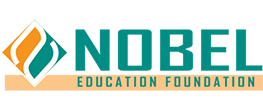In the dynamic realm of Psychology and Counseling in the USA, students delve into the multifaceted understanding of human behavior, emotions, cognition, and mental processes. Through a rich array of courses and practical experiences, learners explore various dimensions, including:
- Psychological Principles: Students gain insight into foundational theories and principles that form the bedrock of psychology. They study topics like cognitive psychology, developmental psychology, abnormal psychology, and social psychology, understanding human behavior in different contexts.
- Counseling Techniques: Education in counseling equips students with practical skills to assist individuals dealing with mental health challenges or seeking guidance. They learn various counseling approaches, communication strategies, and therapeutic interventions aimed at helping individuals cope with emotional distress or behavioral issues.
- Research Methodologies: Understanding research methodologies and statistical analysis is crucial in psychology. Students learn how to design and conduct research studies, collect and analyze data, and interpret findings to contribute to the evolving knowledge base within the field.
- Ethics and Professional Standards: The ethical considerations in psychology and counseling are paramount. Students are taught about ethical guidelines, confidentiality, and legal standards, ensuring they understand the responsibilities and boundaries of practicing in this field.
- Clinical Practice and Internships: Many programs offer practical experiences through internships or clinical placements, allowing students to apply their theoretical knowledge in real-world settings under supervision. This hands-on experience helps in honing counseling skills and understanding diverse client needs.
- Diversity and Cultural Competence: Courses often emphasize cultural sensitivity and diversity, ensuring students recognize and respect the influence of culture, ethnicity, gender, and socioeconomic factors on human behavior and mental health.
- Specialized Areas: Students may explore specialized areas such as marriage and family counseling, addiction counseling, school psychology, or industrial-organizational psychology, tailoring their studies to their specific interests within the field.
- Professional Development: Programs may provide guidance on career development, licensure requirements, and ongoing professional growth opportunities, preparing students for the transition from education to practice.
The field of Psychology and Counseling in the USA offers a comprehensive educational journey, blending theoretical knowledge with practical experiences. Graduates are equipped to pursue careers in counseling, therapy, research, or further advanced studies, contributing meaningfully to the mental health and well-being of individuals and communities







